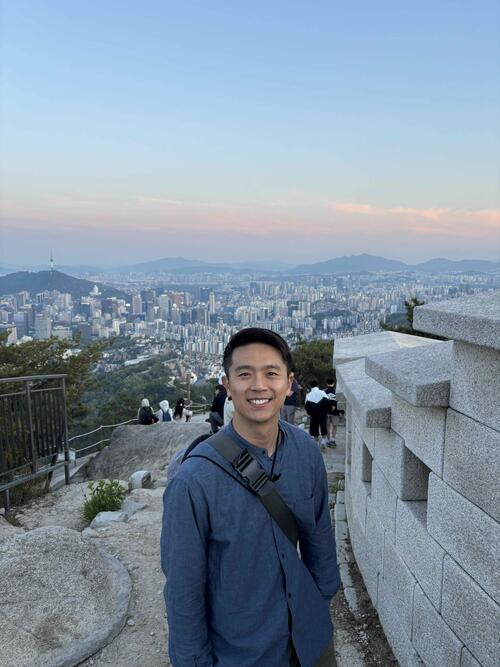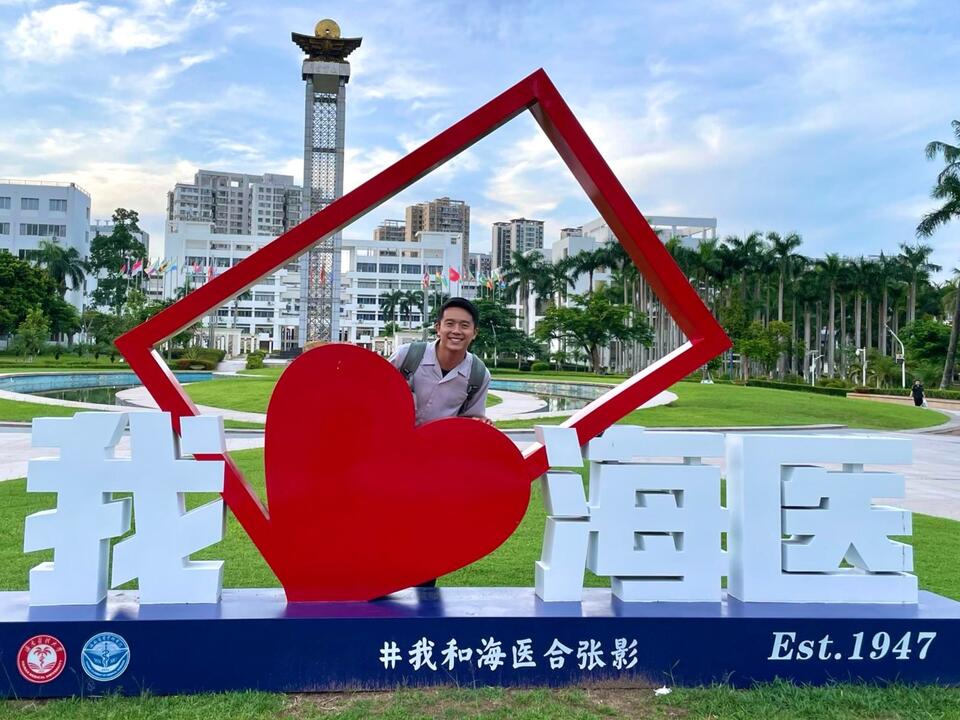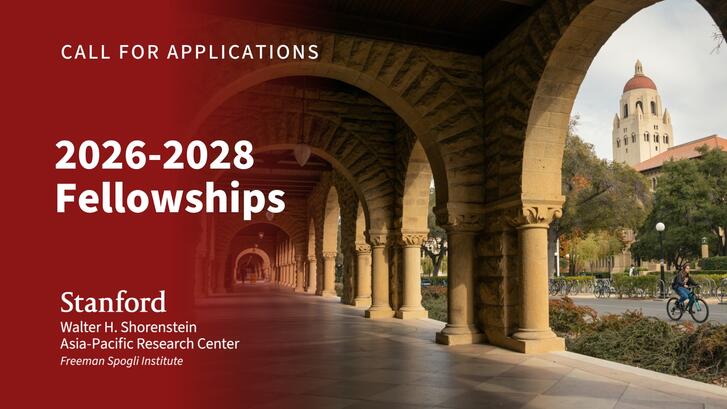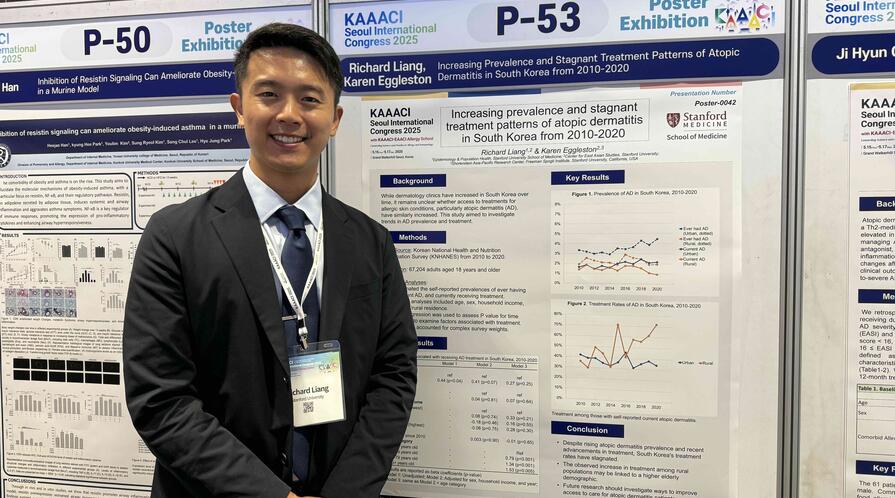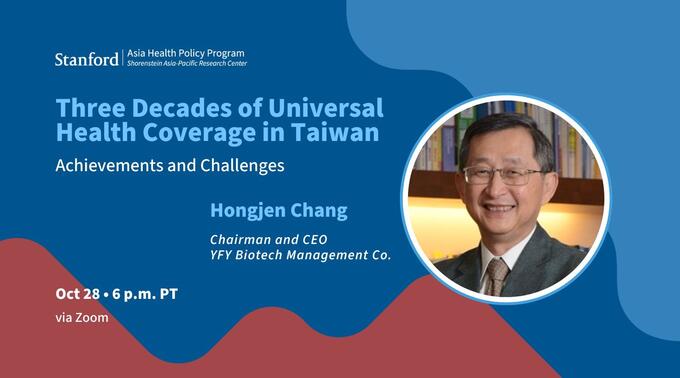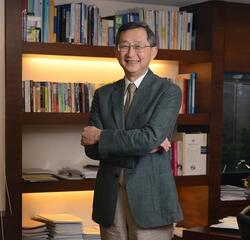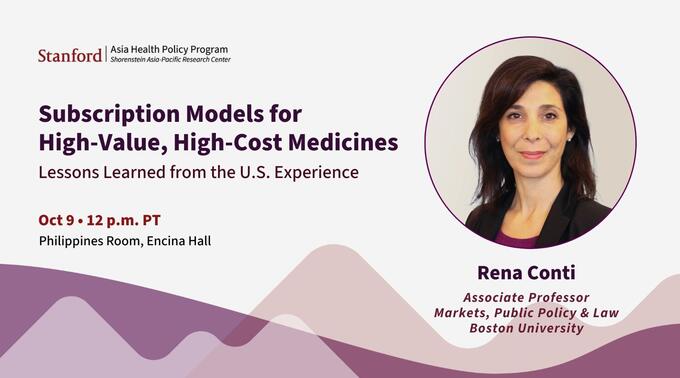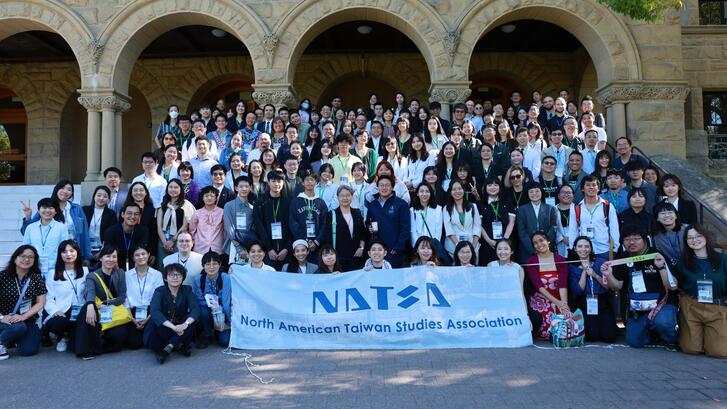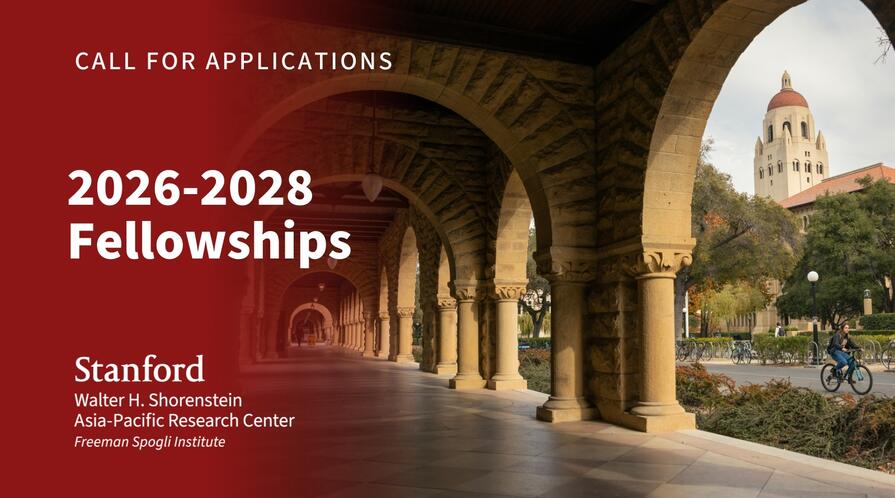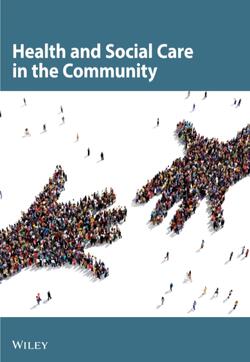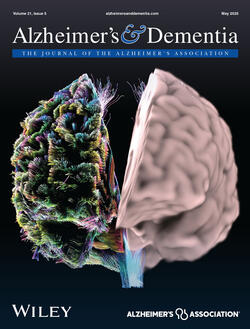Government healthcare payors in Asia and globally may face financial incentives to restrict use of high-cost medications. Yet, restrictions on access to high-value medications may have deleterious effects on population health. Advance purchase commitments (APCs), wherein a payor commits to purchase a certain quantity of medications at lower prices, offer payors incentives to increase access to high-value medications and companies guaranteed revenue; a potential win-win-win for patients, business and society.
Dr. Conti will discuss the United States payor experience with subscription models, a type of APC, to support increased access to high-value medicines. She will focus on direct-acting antivirals (DAAs), available since 2013, that can cure chronic infection with Hepatitis C virus (HCV). With prices upwards of $90,000 for a treatment course, many payors struggle to ensure access to DAAs to populations in need of treatment. Since 2018, several U.S. states have implemented HCV subscription models, and a national HCV elimination strategy featuring a DAA subscription model has been announced.
Dr. Conti will review the empirical evidence on impacts and lessons learned from implementation to date, as well as provide a framework for payors interested in pursuing subscription models targeting DAAs and other high-value, high-cost medicines.
Rena Conti is an associate professor of markets, public policy, and law at Questrom School of Business, Boston University. Professor Conti is the co-director of the Technology Policy and Research Initiative, a joint program between Questrom School of Business and the Law School, and the life sciences markets co-lead at the Ravi K. Mehrotra Institute for Business Markets and Society at Questrom School of Business.
Professor Conti holds a Ph.D. from Harvard University Graduate School of Arts and Sciences in health policy and economics. She was a faculty at the University of Chicago between 2006 and 2018. Professor Conti has published extensively on biopharmaceutical pricing, competition, and innovation. Professor Conti has testified on the economics of biopharmaceutical markets in hearings held by the U.S. Senate, the U.S. House of Representatives, the U.S. Food and Drug Administration, the Federal Trade Commission, and numerous state legislative houses. Professor Conti served as Special Government Advisor to the Centers for Medicare and Medicaid Services (CMS) 2022-2023 and has held additional advisory roles at the U.S. Food and Drug Administration (FDA). Professor Conti served as the lead economist on the establishment of the State of Louisiana’s landmark Subscription Model for Hepatitis C Virus Elimination (HepCfreeLa). Professor Conti currently serves as an appointed member of the New Jersey Drug Affordability Council and is an elected member of the Conference on Research in Income and Wealth. She currently serves as a board member of the Boston University Medical Group.
The research of Professor Conti has been featured in the New York Times, the Wall Street Journal, the Washington Post, Bloomberg News, USA Today, the Chicago Tribune, the Boston Globe, the LA Times, 60 Minutes, the Daily Show, Vox, the Atlantic, Statnews, and the Colbert Report, among other print and media outlets. Grants and awards from the National Cancer Institute, the National Institute of Mental Health, the National Institute on Drug Abuse, the National Science Foundation, the Sloan Foundation, the Commonwealth Fund, American Cancer Society, and Arnold Ventures, among other sources, support her research.

